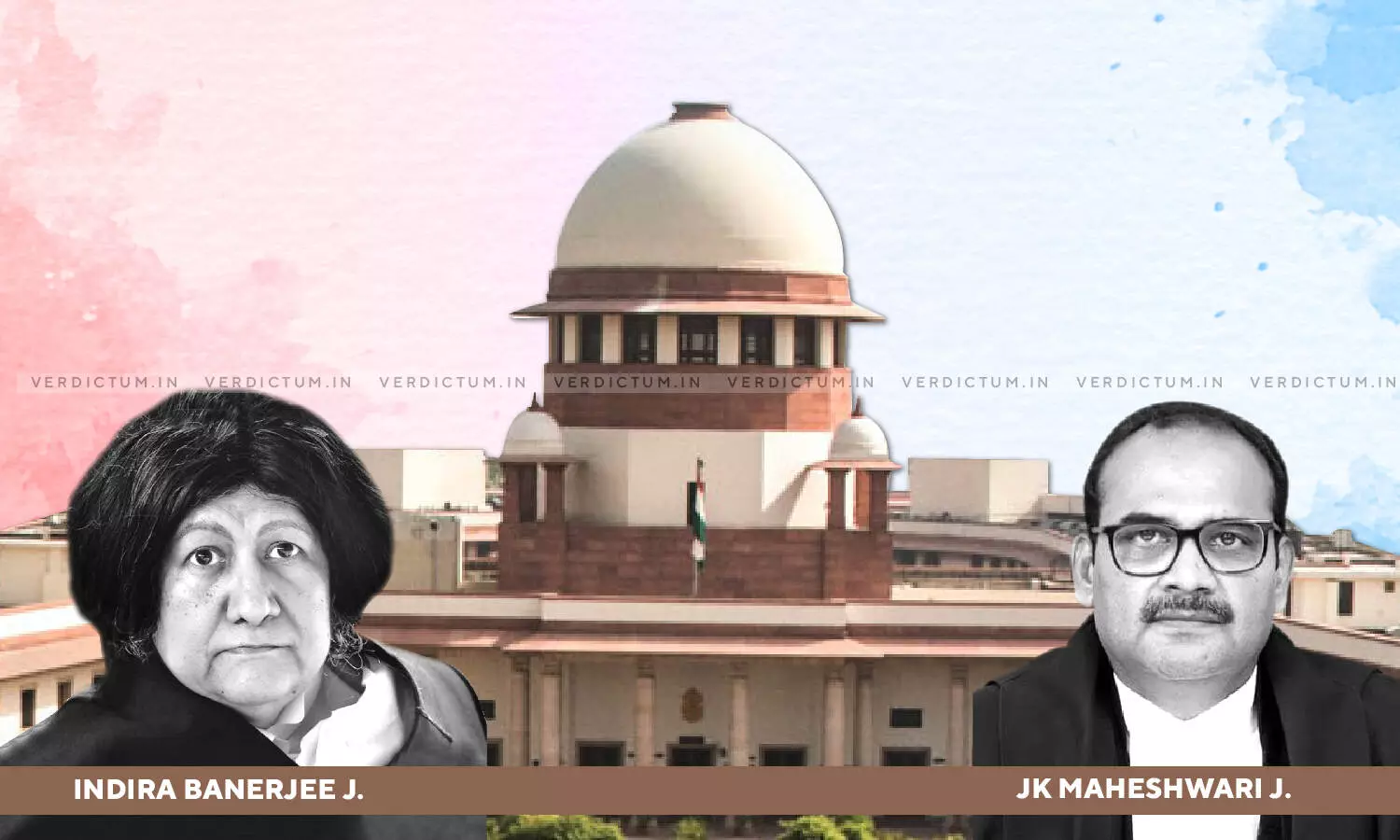
IBC 2016- Liability Of The Guarantor Is Co-Extensive With That Of The Principal Borrower: SC Reiterates
 |
|The Supreme Court's Bench of Justice Indira Banerjee and Justice JK Maheshwari has reiterated that the liability of the guarantor is co-extensive with that of the Principal Borrower under the Insolvency and Bankruptcy Code, 2016.
The facts of the case were that the Appellant is the promoter, shareholder, and suspended/ discharged director of Maharaja Theme Parks and Resorts, a company registered under the Companies Act, 1956. Respondent No.1, ("Financial Creditor") had advanced credit facilities to the three entities. Maharaja Theme Parks and Resorts stood guarantor for the loans availed by all three borrowers. The borrowers failed to repay the debts payable by them to the Financial Creditor.
Thereafter, the Financial Creditor filed an application under Section 7 of the IBC for initiation of the Corporate Insolvency Resolution Process against Maharaja Theme Parks and Resorts.
In the said application the Financial Creditor stated that Maharaja Theme Parks and Resorts had extended corporate guarantee(s) for loans availed by each of the borrowers. On failure of the borrowers to repay the loans, Maharaja Theme Parks and Resorts, as Guarantor, became liable to repay the loan.
Maharaja Theme Parks and Resorts filed its counter statement before the Adjudicating Authority, objecting to the jurisdiction of the National Company Law Tribunal to entertain the petition, on the contention that, the company, Maharaja Theme Parks and Resorts Private Limited, was not a Corporate Debtor.
However, the Adjudicating Authority admitted the petition under Section 7 of the IBC and initiated the CIRP against Maharaja Theme Parks and Resorts. The appeal before the National Company Law Appellate Tribunal came to be dismissed.
Aggrieved, appellants approached Supreme Court.
Advocate Amitesh Chandra Mishra appearing on behalf of the Appellant submitted that Maharaja Theme Parks and Resorts does not fall within the ambit of the definition of Corporate Guarantor, and therefore CIRP cannot be initiated against it.
On the other hand, Senior Advocate Nikhil Nayyar appearing on behalf of the Respondent-Financial Creditor submitted that the issue of whether an action under Section 7 of the IBC can be initiated by a Financial Creditor, against a corporate person, in relation to a corporate guarantee, given by that corporate person, in respect of a loan advanced to the principal borrower, who is not a corporate person, was answered in Laxmi Pat Surana v. Union Bank of India and Another.
In Laxmi Pat Surana (supra), the Supreme Court had held thus "Indubitably, a right or cause of action would enure to the lender (financial creditor) to proceed against the principal borrower, as well as the guarantor in equal measure in case they commit default in repayment of the amount of debt acting jointly and severally. It would still be a case of default committed by the guarantor itself, if and when the principal borrower fails to discharge his obligation in respect of amount of debt."
It was further held in Laxmi Pat Surana (supra) that the obligation of the guarantor is coextensive and coterminous with that of the principal borrower to defray the debt, as predicated in Section 128 of the Contract Act.
The Supreme Court observed that the Judgment in Laxmi Pat Surana (supra), rendered by a three-Judge Bench of Supreme Court is binding on the instant Bench.
Therefore the Court refused to interfere with the concurrent findings of the Adjudicating Authority (NCLT) and the Appellate Authority (NCLAT).
Cause Title- K. Paramasivam v. Karur Vysya Bank Ltd. & Anr.
Click here to read/download the Judgment